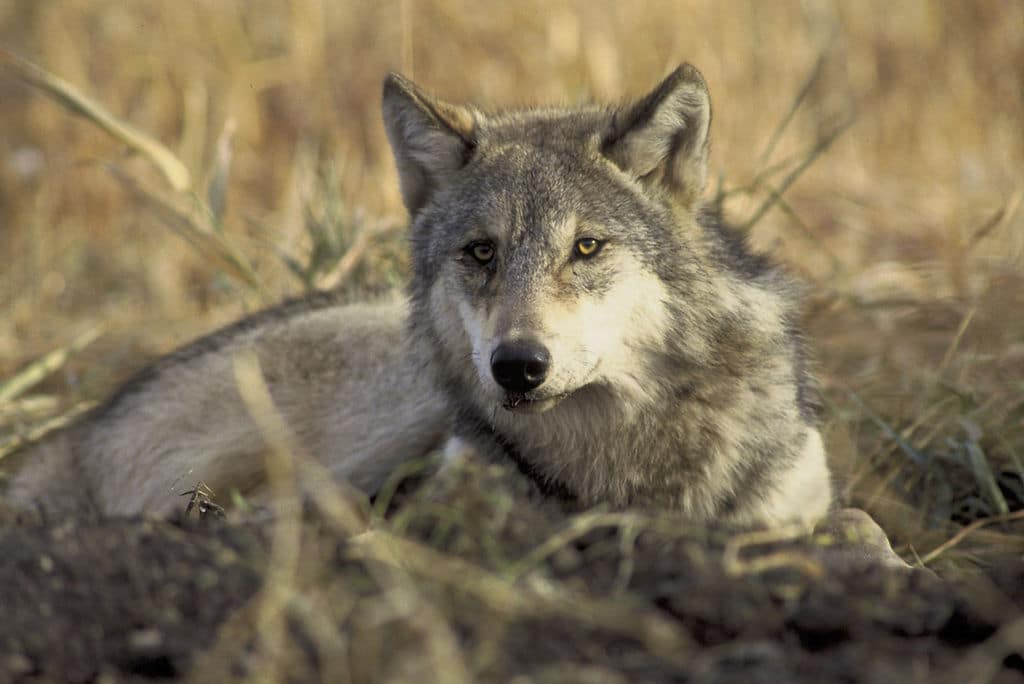Initiatives are being taken to establish a genetic repository in the US to safeguard the genetic diversity of endangered species with the potential to support conservation and cloning. This project has already preserved samples from five endangered species and is dedicated to securing America’s biodiversity heritage.
—
Animal extinction and biodiversity loss are long-standing issues, though they have become increasingly imperative over the years due to factors such as habitat destruction, illegal wildlife hunting, and the rapidly deteriorating climate crisis.
Currently, more than 25% of Earth’s species are at risk of extinction, and this figure could increase to 50% by the end of the century without timely intervention. This biodiversity crisis is considered more drastic than climate change, affecting 28% of all assessed species. The current extinction rate is significantly higher than historical averages. While Earth has experienced natural extinctions over billions of years, in the past century, reckless human actions have exacerbated the situation.
Climate change is subjecting the world’s wildlife to a series of challenges, such as the disappearance of their natural habitats and a decrease in available food. Endangered species in the US are moving dangerously close to extinction at a concerning rate. When these species vanish, there is a risk of losing crucial genetic data that they carry within them, which could have potential implications for the broader ecosystem.
More on the topic: 10 of the Most Endangered Species in the US in 2023
In October 2023, the US Fish & Wildlife Service (FWS) revealed that they have teamed up with the non-profit organisation Revive & Restore and other collaborators to establish a comprehensive genetic repository for endangered species across the US, which aims to safeguard the genetic diversity and biological heritage of the nation’s threatened species in the shortest possible time.
Oliver Ryder, Kleberg Endowed Director of Conservation Genetics at San Diego Zoo Wildlife Alliance, said, “We want to provide the greatest possible set of options for ensuring the continued survival of the native wildlife of the United States.”
The San Diego Zoo Wildlife Alliance is also a part of this partnership, actively contributing to the conservation and restoration of endangered species and ecosystems, thus further emphasising its commitment to preserving the natural heritage of the United States.
Revive & Restore was established in 2012 and received support from The Long Now Foundation, an organisation located in the San Francisco Bay Area, United States. The Long Now Foundation is dedicated to fostering a perspective that spans ages within a 10,000-year framework and adopts a far-reaching approach to wildlife conservation. Their mission is to leverage the Genetic Rescue Toolkit, which can advance and optimise traditional conservation practices, in order to support the restoration of biodiversity and bio-abundance for generations to come. The NGO acts as a facilitator for partnerships, an instigator of technological advancements, and a financier of impactful research. All these factors work together to lay the foundation for a brighter future in wildlife preservation.
FWS field staff are employing biobanking, where they collect biological samples, including blood, tissues, and reproductive cells from animals. These samples are cryogenically preserved at frigid temperatures and stored at a United States Department of Agriculture (USDA) facility in Colorado. These samples also undergo genetic sequencing, and the resulting data is shared on the publicly accessible GenBank database.
This repository of frozen living cells is expected to play an integral role in ongoing and future conservation initiatives. It can aid in diversifying gene pools within captive breeding programmes, with the end objective of reviving species populations. Experts also recognise that this resource has the potential for applications in cloning.
The Deputy Assistant Regional Director of Ecological Services for the FWS’s Southwest region, Seth Willey, provided a statement indicating that biobanking offers a means to preserve genetic diversity that is distinctive and cannot be recreated. He also added that, “if done right, [biobanking] creates a marker in time and gives future recovery biologists options, like genetic rescue, that are only possible if we act now.”
Ryan Phelan, the executive director of Revive & Restore, asserts that this expansive project is “creating a legacy of America’s natural history before it is lost and provides an important resource to enhance species recovery efforts now and in the future,” with the mission of creating a comprehensive biobank that includes all endangered mammal species in the country.
Since the project’s launch in January 2023, the organisations involved have already collected and preserved samples from five endangered species, including the Mexican wolf (Canis lupus baileyi), the Florida bonneted bat (Eumops floridanus), and the Sonoran Pronghorn (Antilocapra americana sonoriensis). While the initial phase of the programme focuses on 24 endangered mammals in the US, the ultimate objective is prodigious as they step forward to establish a repository that preserves America’s rich biodiversity heritage for future generations.
Check out our Endangered Species Spotlight Series

















